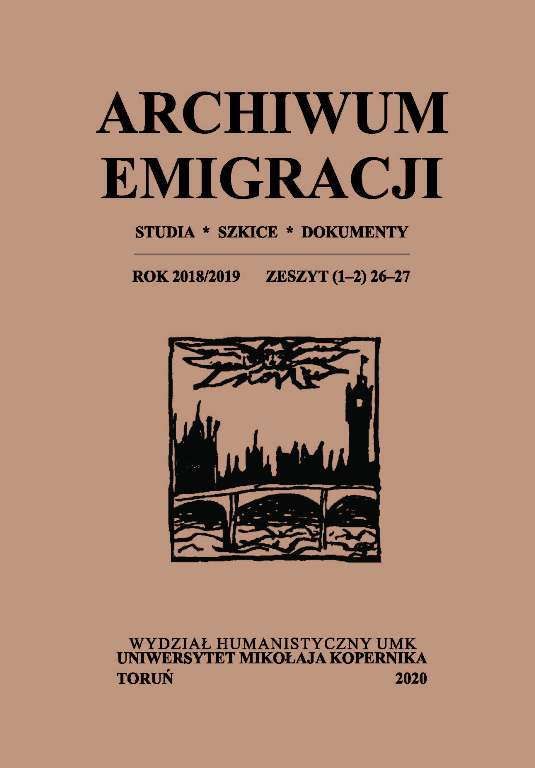Ten sam głos. O „Dzienniku bez samogłosek” Aleksandra Wata
DOI:
https://doi.org/10.12775/AE.2018-2019.014Keywords
KEY WORDS, dysarthria, speech disorders, pain, suffering, autopathography, avant-gardeAbstract
THE SAME VOICE: THE DZIENNIK BEZ SAMOGŁOSEK [A DIARY WITHOUT VOWELS] BY ALEKSANDER WAT
The purpose of this article is an interpretation of Aleksander Wat’s oeuvre from logopedic and literary perspectives. The author argues that the analysis of Aleksander Wat’s personal and medical documents, as well as of the phonetic transcripts of the recording of his voice, proves that he suffered from flaccid dysarthria. Furthermore, she also suggests that there is a correlation between Aleksander Wat’s speech disorder and his literary works, which serve to record his suffering and are an attempt to represent dysarthria in poetry. On the example of the poet’s early works, she shows that in his youth Wat was already interested in speech disorders and the significance of sound in poetry. His later compositions reflect his renewed interest in the field after he experienced a neurological incident. It turns out that the futurist poet’s interest in the sound of poetry and in utterances on the margins of standard discourses (speech impediments, stutter, errors, etc.), characteristic of many eminent avant-garde 20th-century writers, gained a personal meaning in Wat’s late works.
References
Duffy J. R., Motor Speech Disorders. Substrates, Differential Diagnosis, and Management, Filadelfia 2005.
Dziadek A., Projekt krytyki somatycznej, Warszawa 2014.
Kmiecik M., Szyfr w „Dzienniku bez samogłosek” Aleksandra Wata, „Teksty Drugie” 2017, nr 4.
Lipszyc A., Czerwone listy: Eseje frankistowskie o literaturze polskiej, Kraków–Budapeszt–Syrakuzy 2018.
Neurologia, t. 2, red. A. Stępień, Warszawa 2014.
Pamięć głosów, red. W. Ligęza, Kraków 1992.
Panasiuk J., Afazja a interakcja. Tekst — metatekst — kontekst, Lublin 2013.
Pietrych K., Co poezji po bólu? Empatyczne przestrzenie lektury, Łódź 2009.
Venclova T., Aleksander Wat: Obrazoburca, Kraków 2000.
Wat A., Ciemne świecidło [recytacja poety], https://www.youtube.com/watch?v=1EaIC41OF30.
Wat A., Dziennik bez samogłosek, oprac. K. Rutkowski, Londyn 1986.
Wat A., Dziennik bez samogłosek, oprac. K. Rutkowski, Kraków 1987.
Wat A., Dziennik bez samogłosek, oprac. K. Rutkowski, Warszawa 1990.
Wat A., Dziennik bez samogłosek, oprac. K. i P. Pietrychowie, Warszawa 2001.
Wat A., Dziennik bez samogłosek, oprac. M. Kmiecik, Kraków 2018.
Wat A., Korespondencja, t. 1, Warszawa 2005.
Wat A., Notatniki, red. A. Dziadek, Katowice 2015.
Wat A., Poezje, oprac. A. Micińska, J. Zieliński, Warszawa 1997.
Wat A., Wybór wierszy, Wrocław 2008.
Downloads
Published
How to Cite
Issue
Section
Stats
Number of views and downloads: 797
Number of citations: 0



